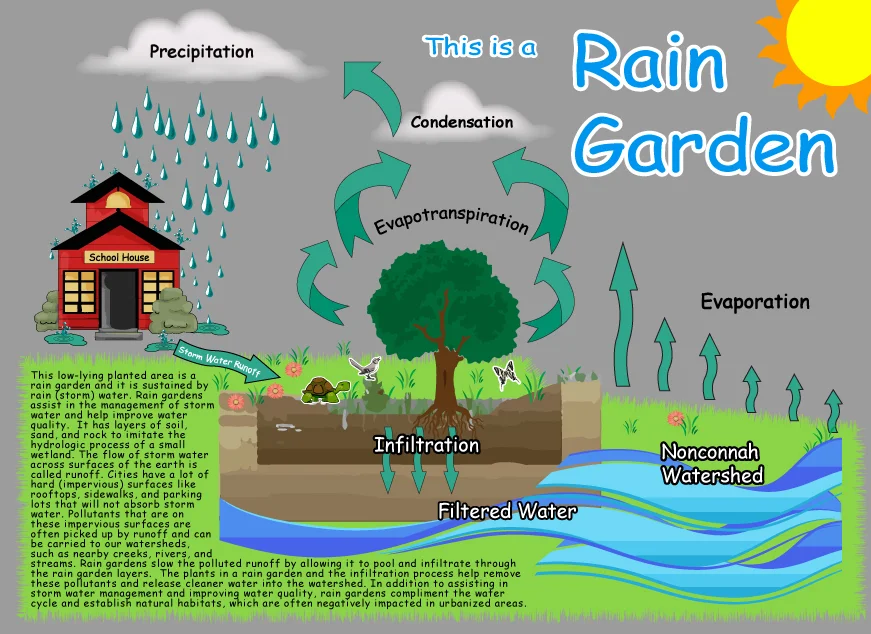One of the 3 original rain gardens after initial installation at Kirby High School. Since then, "Project Rain Garden" has evolved with the goal of installing 3 rain garden per year at schools who are interested in maintaining and utilizing the gardens to educate children and the community.
Read the article as published in TNSA's April 2016 newsletter here or read it below!
It began with a TNSA grant that had the objective of advancing green development projects across the state by assisting cities with the implementation of green infrastructure projects that would deliver multiple benefits to communities. The City of Memphis was an enthusiastic recipient of that grant and had a vision to create an outdoor venue for educational purposes within communities that would beautify neighborhoods, enhance water quality, and educate the general public about storm water and our impact upon it. With all those goals in mind and schools as the focus, rain gardens were the blatantly obvious and perfect type of green infrastructure to achieve so many objectives. Upon award of the grant, three feeder schools were selected for the installation of the rain gardens: an elementary school, a middle school, and a high school. “The idea of installing the rain gardens at different age-level schools was to develop lesson plans that grow with the child.” Tasha King-Davis, Storm Water Program Manager explains, “Our Storm Water Program has developed age-appropriate curriculums for the schools to use. You start with the basics about what water is and where it comes from and then you move to the water cycle, impairments to the water cycle, impacts on water quality, and what we can do to make a positive impact on water quality. By providing continued hands-on exposure, our young students will graduate as environmentally-conscientious young adults that will leave a better impact on water quality.” Better yet, it didn’t stop with rain gardens. The high school was provided with sampling kits for lab use to test the water and make comparisons on water quality. The schools were provided with Project Wet Books. They were even motivated enough to purchase Enviroscapes, a large model that demonstrates the variety of pollutants that can enter our waterways and how they enter waterbodies. The rain gardens were installed within view of the public, each with a kiosk that explained the general description of the rain garden and its benefits. Since the installation of these three original rain gardens, the Storm Water Program has initiated a program to install rain gardens in more City schools for the purpose of educating children and communities about the benefits of green infrastructure. “What we learned from the grant is what we felt was true all along. People are interested in green infrastructure and how it can benefit their communities. We can get them involved by installing rain gardens in schools. It will start by parents learning with children and will end with our children becoming the future and taking this to the next level,” Tasha states. “All we need to do is find City schools with teachers and schools. It will start by parents learning with children and will end with our children becoming the future and taking this to the next level,” Tasha states. “All we need to do is find City schools with teachers and principals that sincerely want to use and implement these amazing learning tools. The City is filled with enthusiastic educators that are just waiting for such an opportunity to advance the growth of children and the community."


